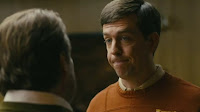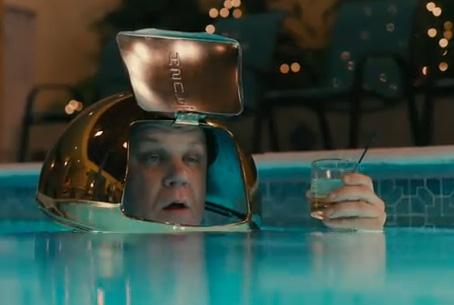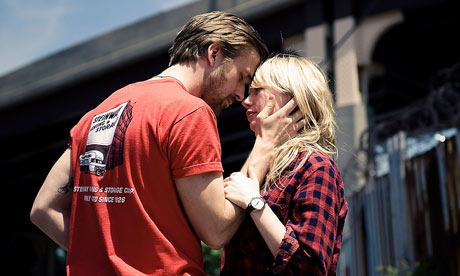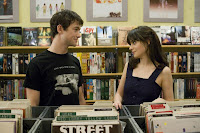At a very brief glance, “Frances Ha” is nothing more than a walking indie film trope. “Frances Ha” has everything that indie filmmakers love: ukeleles, Paris, children of divorce.”
I’m one to talk, as I consume movies like this a little too much. However, what seperates “Frances Ha” from the rest is its ambition and, despite its aimless characters, it actually has a good amount to say. Unfortunately, a lot of those things are left unsaid.
Dramedy is not the right word for “Frances Ha.” Tragicomedy would be a better way to put it, despite the fact that not many big, tragic events occur during its short running time. “Frances Ha” is filled with a lot of sad characters who are stuck in ruts. Yet, Noah Baumbach manages to find little bits of humor in all of the depression that always work so well. He is not just showing how these people live, but also prodding at them a little bit.
Director Noah Baumbach has clearly found his muse in Greta Gerwig, who co-wrote the film with Baumbach and stars as Frances. The two first collaborated on “Greenberg,” but “Frances Ha” works a little better. Baumbach is better at portraying ennui in his hometown of New York than in Los Angeles.

Unlike Greenberg and many other of Baumbach’s characters, Frances is not a complete loner. Her friendship with Sophie (Mickey Sumner) can best be described as co-dependent. Or in their own words, they’re like “a lesbian couple that doesn’t have sex anymore.” Their career goals couldn’t be more different: Frances wants to be a dancer and model, and Sophie hopes to one day run the publishing industry. These are the kind of goals the people in their 20s that live in Brooklyn have.
“Frances Ha” is mainly about how the friendship between Frances and Sophie deteriorates as Sophie moves on but Frances doesn’t. Frances becomes a drifter, going from apartment to apartment and couch to couch. Most notably, she stays with Lev (Adam Driver) and Benji (Michael Zegen), two aspiring artists who are kept afloat because of their rich parents.
“Frances Ha” explores an idea also explored in the very similar “Girls” that the spoiled seem to be the only ones who have the time to pursue artistic dreams. Frances is the rare poor artist. Yet, nobody seems to appreciate their opportunities when they come about. Benji gets a chance to send in a skit to “Saturday Night Live,” yet he doesn’t even seem to care if he gets it because he thinks the show isn’t as good as it used to be. Shockingly, this is something that people actually say.

As Sophie, relative newcomer Sumner makes a big impression. She can portray straight-laced heartbreak even when she seems absolutely calm. Meanwhile, Gerwig once again proves herself to be one of the most underrated actresses working today. One of my biggest problems with the film was that it’s opinion on Frances wasn’t always very clear. Gerwig knows when to make her likable and hatable. Sometimes, she can do both at the exact same time.
Unlike Baumbach’s past works, “Frances Ha” actually comes with a sense of relative closure. I have always had mixed feelings about Baumbach’s work, yet I always find myself excited about whatever new film he has planned. Ever since I saw “The Graduate,” I’ve been attracted to characters who don’t know what they want to do with their life. It’s the opposite of the uber-confidence that is usually considered to be the norm. It’s always refreshing to see someone admit that they have no idea what they’re doing. Deep down, we all feel the exact same way.
Movies with aimless characters only work if they have a point. “Frances Ha” works because it has a point. However, I still don’t quite know how Baumbach and Gerwig actually feel about Frances. There is no one there to really call her out ever. There is no Greek Chorus to tell the audience how to feel, which is good in one way, but bad in other ways. The film cycles through a lot of different characters in its short yet ambitious running time, but it often doesn’t take a second to let us know who they are and what their stance is. Frances spends a long time back home in Sacramento, but never once do they seem worried that their 27-year-old daughter is basically broke.
Yet, the flaws of the film still don’t hold it back too far. This is the first time Baumbach has shed more hope than cynicism into one of his films. Not to mention, it has the best soundtrack of any film so far this year and some really whip smart dialogue. At one point, Frances mentions that Walden Pond, where Henry David Thoreau lived and wrote in seclusion, was actually only five minutes away from his mother’s house. “Frances Ha” wants to be the voice of all twenty-somethings who aren’t nearly as independent as they think they are. You’ll probably connect to it, as long as you’ve ever lived in the vicinity of Brooklyn.

















